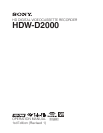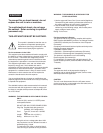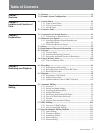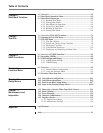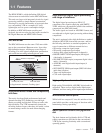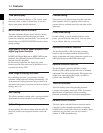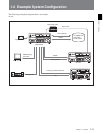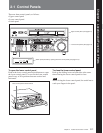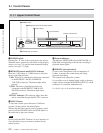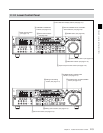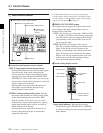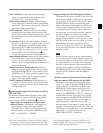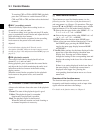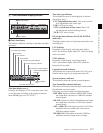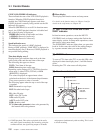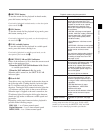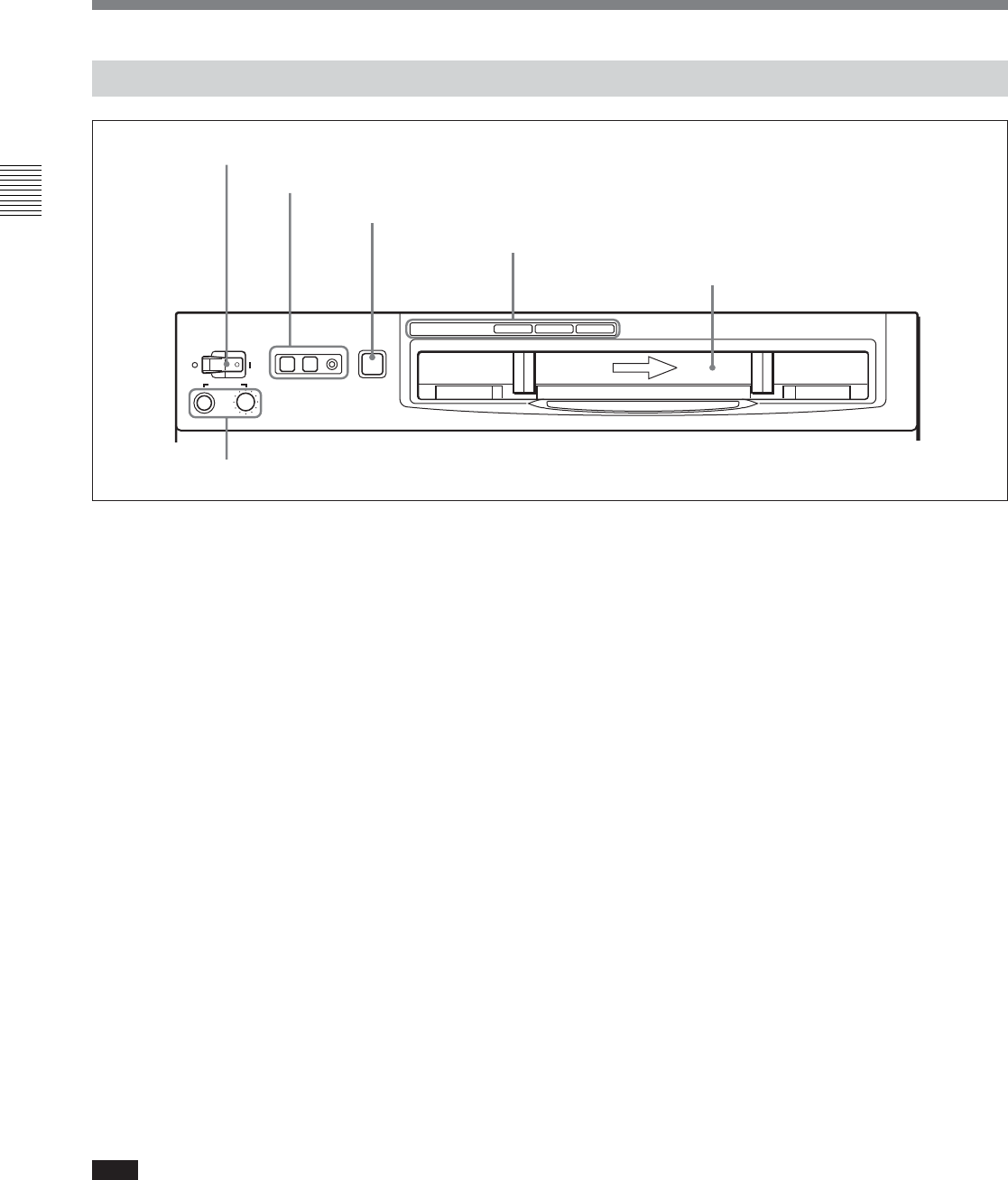
Chapter 2 Location and Function of Parts
2-2 Chapter 2 Location and Function of Parts
2-1-1 Upper Control Panel
Z
1(9P) 2(50P) RS-232C
HDCAM
Digital BETACAM
MPEG IMX
POWER
PHONES
REMOTE
EJECT
1 POWER switch
2 REMOTE buttons and RS-232C indicator
4 Format indicators
5 PHONES jack and control
Cassette compartment
1 POWER switch
Pressing the ‘ ) ’ side of the switch powers the unit on.
When the unit is powered on, the audio setting display
section (see page 2-4) and the time data/menu display
section (see page 2-7) light.
2 REMOTE buttons and RS-232C indicator
Press the 1 (9P) button or 2 (50P) button to select the
device controlling this unit.
1(9P): This unit is controlled by the device connected
to the REMOTE 1-IN(9P) or REMOTE
1-OUT(9P) connector. The button lights when
pressed.
2(50P): This unit is controlled by the device
connected to the REMOTE 2 PARALLEL
I/O(50P) connector. The button lights when
pressed.
RS-232C indicator: This indicator lights when this
unit is controlled through the RS-232C connector.
3 EJECT button
To eject the cassette, press this button. While the
cassette is being ejected, this button lights.
When using the lower control panel as remote control
panel, press the DELETE button and STOP button at
the same time to eject the cassette.
Note
Ejecting with the EJECT button is a local operation. It
is not possible to eject a cassette in another unit by
remote control.
4 Format indicators
The indicator (MPEG IMX, Digital BETACAM, or
HDCAM) corresponding to the current recording or
playback format lights.
5 PHONES jack and control
Connect stereo headphones with an impedance of
8 ohms, to monitor the sound during recording,
playback and editing.
The control knob adjusts the volume.
It is possible to set an internal board switch so that the
output volume from the MONITOR OUTPUT L and R
connectors is controlled simultaneously.
For details, refer to the Installation Manual.
3 EJECT button
2-1 Control Panels



